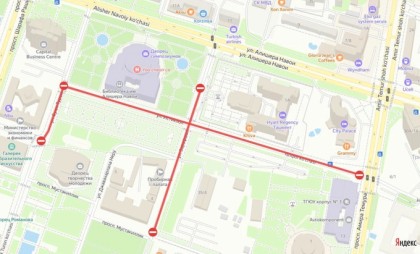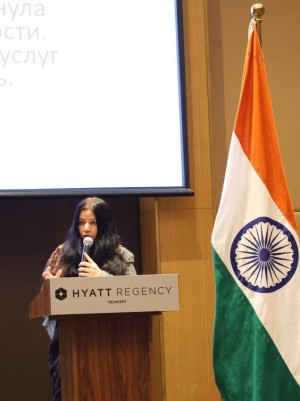The bill signed into law by the President of Uzbekistan on April 4, now harshens the liability for the use of torture and other inhuman or degrading treatment and punishment, Norma.uz reports.
Prior to amending the article 235 of the Criminal Code, there were formal obstacles, which in some cases did not allow the prosecution of persons involved in torture under this article. Now the restrictions are eliminated.
First, the range of possible victims has been expanded. Previously, unlawful actions against a suspect, accused, witness, victim, other participant in criminal proceedings or their close relatives were recognized as torture. People who had been subjected to administrative arrest, convicts, defendants (in fact, as the accused is named a defendant at the trial, see article 45 of the Criminal Procedure Code), as well as their close relatives were left out of the Article 235 of the Criminal Code.
Secondly, the circle of persons bearing liability has been expanded. Before it included investigators, prosecutors or officers of other law enforcement or penal institutions. Pretrial centers, military structures, etc were dropped before. Now, according to Article 235 of the Criminal Code, not only law enforcement officers, but also any other state body can be brought to justice.
From now on, committing torture by other persons at the instigation of a civil servant or with his knowledge or with his tacit consent is also qualified as torture under Article 235 of the Criminal Code. In fact, this means that all civil servants who knew about the fact of torture, but did not take appropriate measures (at least failed to report this crime) are deemed offenders, Norma.uz notes.
Article 22 of the Code of Criminal Procedure, which regulates one of the fundamental principles of the criminal process - the establishment of truth, is supplemented by a new rule: declaration of the use of unlawful methods when collecting and consolidating evidence are subject to mandatory verification with forensic or other examination in accordance with the procedure established by law.
Thirdly, new qualifying signs (aggravating circumstances) have been introduced: torture against two or more persons; with the use of objects, the use of which can harm life and health; with the purpose of falsification (forgery) of evidence.
Fourth, penalties have been raised. Part 1 of Article 235 of the Criminal Code (without qualifying signs) establishes a punishment in the form of restriction or imprisonment of 3 to 5 years. The previous maximum punishment was up to 3 years of imprisonment.
Part 2 of Article 235 of the Criminal Code (without qualifying signs) now provides for imprisonment from 5 to 7 years.
If serious bodily injuries were caused or other serious consequences occurred, the punishment would be from 7 to 10 years of imprisonment.
In addition to the above penalties, a mandatory additional penalty is imposed - the deprivation of a certain right, for example, of the right to work in law enforcement.














